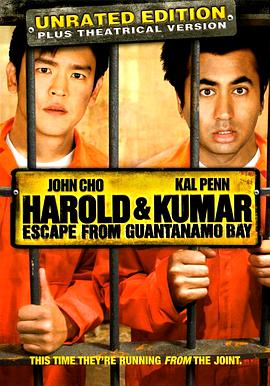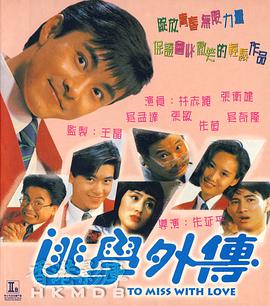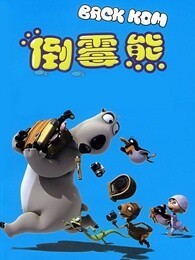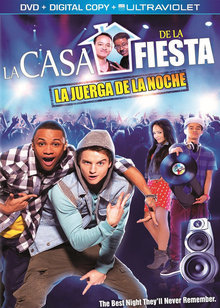简介
莫顿·达考斯塔
罗莎琳德·拉塞尔,弗罗斯特·塔克,卡罗尔·布朗
喜剧片
美国
1958
{if:"Segueing from Broadway to the celluloid, AUNTIE MAME charmingly retains its gleaming theatrical sheen in the safe hands of its original Broadway director Morton DaCosta, who snazzily dips his toes into the Tinseltown, the kaleidoscopic opening credits, the consecutive changeovers of eclectic decor in Mame’s plush Manhattan apartment (chinoiserie, modernism, gee-whiz novelty, India fad, etc.), not to mention the feat of blacking out in the end of every act and fading out on our beloved Mame (Russell), there is no intention whatsoever to bring a sense of “vérité” from the medium transcription, at that time, cinema and play are amicable bedfellows, with the former mostly a beefed-up version (more grandiose, more opulent, and more volume can be heard) of the latter, which naturally can have access to a far more vast proportion of populace. So, if you are not a diehard fan of stage theatrics, chances are the film version might not be your cuppa neither, but courtesy to a spectacular Russell, who flouts Hollywood female star’s common, sexist sell-by date, and flamboyantly commands a top-shelf studio vehicle in her 50s, and if you count this as an outlier, 4 years later she will do it again in Mervyn LeRoy’s GYPSY (1962), also to a fabulous effect!Auntie Mame represents the ultimate New York chic, a free-spirited, liberal-minded soul laced with a ghost libertine luster, and has an immaculate taste in choosing confidants (she and Coral Browne’s toping stage actress Vera makes a fantastic pair in tandem), all the same she is armed with full discernment and intellect to parry off various less palatable characters, whether a puritanical trustee Dwight Babcock (Clark, whose comic timing and miffed reaction is cracking), an Irish gold digger Brian O’ Bannion (Hughes), or the snooty, racist, shallow Upsons household, who almost lures her nephew Patrick (Handzlik as a teenager and Smith as the adult), her only kindred, into the dreadfully odious sphere of rich, white conservatism.“Life is a banquet, and most poor suckers are starving to death!” Mame lives up to her immortal motto in full, she is a sybarite and glamour puss who is also not above to join the workforce when her fortune takes a downturn, as a stage actress prone to upstaging everyone else even she has only meager lines to deliver, or a telephone operator often gets the wires crossed, or a one-trick-pony Macy’s sale girl, she doesn’t lament or grouse about her misfortune (aside from the impinged separation with Patrick), only to be saved by true love which rarely transpires at a woman of her mature age in Hollywood's assembly line, and which she takes with chipper alacrity, and will combat and relish it for all she is worth. As the kingpin of the show, Russell achieves something extraordinarily remarkable in embodying this good-natured eccentric, grandiloquent in an extremely felicitous fashion, a loudmouth birthed out of screwball comedy, but also can convey less hyperbolic emotion on a dime, most of all, it is her alluring self-knowledge and display of wisdom that ensconced Mame as one of the most delightful characters ever in the cinematic realm. Woefully Oscar misses out the opportunity to award her (it is her fourth and final Oscar nomination), but on the other hand, confers Peggy Cass a coattail nomination for her broad slapstick as Agnes Gooch, Mame’s dowdy secretary, is somewhat an overcompensation for all the film’s sophisticated charms. (while both actresses reprise their Tony nominated/winning roles, Cass’s crude antics is better served on a full-scale stage than in front of a camera granting her a full focus, whereas Russell is an adept performer on both media, so she knows how to pull punches when all eyes are on her.)Every youngster needs an auntie Mame as a mentor to guide him or her embracing a life full of wonderment and bonhomie, which the film doesn’t have to drum into a callow Patrick, who almost becomes the kind of creature that Mame disdains, but no fear, through her artful arrangement of a dinner party, Patrick will come to his senses, and hopefully, so is any number of those narrow-minded, straight arrows who alights on AUNTIE MAME, intentionally or not.referential entries: Mervyn LeRoy’s GYPSY (1962, 7.5/10); Vincente Minnelli’s GIGI (1958, 6.6/10)."<>""}Segueing from Broadway to the celluloid, AUNTIE MAME charmingly retains its gleaming theatrical sheen in the safe hands of its original Broadway director Morton DaCosta, who snazzily dips his toes into the Tinseltown, the kaleidoscopic opening credits, the consecutive changeovers of eclectic decor in Mame’s plush Manhattan apartment (chinoiserie, modernism, gee-whiz novelty, India fad, etc.), not to mention the feat of blacking out in the end of every act and fading out on our beloved Mame (Russell), there is no intention whatsoever to bring a sense of “vérité” from the medium transcription, at that time, cinema and play are amicable bedfellows, with the former mostly a beefed-up version (more grandiose, more opulent, and more volume can be heard) of the latter, which naturally can have access to a far more vast proportion of populace. So, if you are not a diehard fan of stage theatrics, chances are the film version might not be your cuppa neither, but courtesy to a spectacular Russell, who flouts Hollywood female star’s common, sexist sell-by date, and flamboyantly commands a top-shelf studio vehicle in her 50s, and if you count this as an outlier, 4 years later she will do it again in Mervyn LeRoy’s GYPSY (1962), also to a fabulous effect!Auntie Mame represents the ultimate New York chic, a free-spirited, liberal-minded soul laced with a ghost libertine luster, and has an immaculate taste in choosing confidants (she and Coral Browne’s toping stage actress Vera makes a fantastic pair in tandem), all the same she is armed with full discernment and intellect to parry off various less palatable characters, whether a puritanical trustee Dwight Babcock (Clark, whose comic timing and miffed reaction is cracking), an Irish gold digger Brian O’ Bannion (Hughes), or the snooty, racist, shallow Upsons household, who almost lures her nephew Patrick (Handzlik as a teenager and Smith as the adult), her only kindred, into the dreadfully odious sphere of rich, white conservatism.“Life is a banquet, and most poor suckers are starving to death!” Mame lives up to her immortal motto in full, she is a sybarite and glamour puss who is also not above to join the workforce when her fortune takes a downturn, as a stage actress prone to upstaging everyone else even she has only meager lines to deliver, or a telephone operator often gets the wires crossed, or a one-trick-pony Macy’s sale girl, she doesn’t lament or grouse about her misfortune (aside from the impinged separation with Patrick), only to be saved by true love which rarely transpires at a woman of her mature age in Hollywood's assembly line, and which she takes with chipper alacrity, and will combat and relish it for all she is worth. As the kingpin of the show, Russell achieves something extraordinarily remarkable in embodying this good-natured eccentric, grandiloquent in an extremely felicitous fashion, a loudmouth birthed out of screwball comedy, but also can convey less hyperbolic emotion on a dime, most of all, it is her alluring self-knowledge and display of wisdom that ensconced Mame as one of the most delightful characters ever in the cinematic realm. Woefully Oscar misses out the opportunity to award her (it is her fourth and final Oscar nomination), but on the other hand, confers Peggy Cass a coattail nomination for her broad slapstick as Agnes Gooch, Mame’s dowdy secretary, is somewhat an overcompensation for all the film’s sophisticated charms. (while both actresses reprise their Tony nominated/winning roles, Cass’s crude antics is better served on a full-scale stage than in front of a camera granting her a full focus, whereas Russell is an adept performer on both media, so she knows how to pull punches when all eyes are on her.)Every youngster needs an auntie Mame as a mentor to guide him or her embracing a life full of wonderment and bonhomie, which the film doesn’t have to drum into a callow Patrick, who almost becomes the kind of creature that Mame disdains, but no fear, through her artful arrangement of a dinner party, Patrick will come to his senses, and hopefully, so is any number of those narrow-minded, straight arrows who alights on AUNTIE MAME, intentionally or not.referential entries: Mervyn LeRoy’s GYPSY (1962, 7.5/10); Vincente Minnelli’s GIGI (1958, 6.6/10).{else}{end if}






